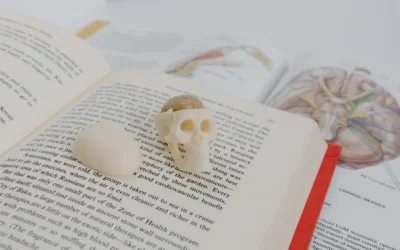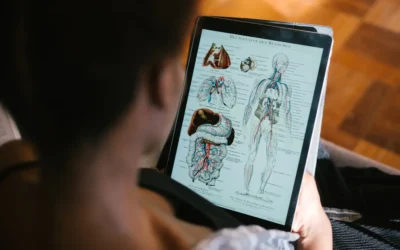Before applying to medical school, should you be medically knowledgeable, an effective communicator, skilled at interacting with diverse individuals and willing to advocate for marginalised patients? Not quite.
Medical schools aim to train students fresh from sixth-form (high school) into competent physicians. How you get into medical school depends on where you are in the world.
In the UK, you can attend medical school directly after sixth-form. If you’re in the US, you’ll need to complete a Bachelor’s degree first.
In this article, we’ll share insight into what actually goes on in medical school. For students looking to get hands-on medical experience before university, consider attending our residential Medicine course at our Oxford summer school.
How Is Medical School Structured?
The medical school curriculum is traditionally divided into pre-clinical and clinical stages.
In the UK, your first three years are pre-clinical, which means you’ll be learning the theory underlying modern medicine. Your final three years are clinical, which means you’ll be learning through practical experience in teaching hospitals.
The pre-clinical years
During the pre-clinical years, students cycle through the different organ systems of the human body. This includes cardiology, which covers the heart and circulatory system, and neurology, which covers the brain and body movements. Within each anatomical system, you learn about a variety of fields related to health.
Biochemistry and molecular biology teaches you the cellular basis of human activity, helping you understand how genetic information is passed from parent to child. Another example is how human cells use genetic information to produce proteins.
Physiology helps you piece together how our organ systems accomplish crucial tasks like circulating oxygen through our body, converting food into nutrients or ridding our bodies of harmful wastes. Pathophysiology exposes you to the variety of ways our body can malfunction and the reasons why.
Pharmacology covers how the body processes drugs and how drugs work in our bodies, allowing you to appreciate the mechanisms for treating illnesses.
Epidemiology and public health helps you appreciate how social factors can impact health. Students analyse statistical findings and assess large-scale illness trends within a population.
Micro to Macro Approach
Approaching the curriculum in this way means that medical students learn all aspects of an anatomical system in one go before moving onto the next system.
If we use cardiology as an example, students will learn about all aspects of the cardiovascular system. This will range from the molecular details, such as how cells cause the heart to pump, to organ-level mechanisms, such as how blood flows through the body. It will also cover patient factors, such as the struggles of those living with heart disease, and social factors, such as the lifestyle factors that lead to greater risks of cardiovascular diseases. This micro to macro approach, which many leading medical schools in the world have started to adopt, helps medical students consider the nuances of human health and illness.
Day to Day Learning
The learning of all these fascinating topics is approached through a variety of ways.
Medical students attend lectures and read textbooks to gain general knowledge. To consolidate specific knowledge, they discuss patient case studies or research papers in small-group discussions. Laboratory experience or anatomical dissections of bodies also offer a practical component to your theoretical research.
The clinical rotation years
After all the theoretical training, you then have the opportunity to apply your theory to a practical setting by working with patients in a hospital under the guidance of a physician supervisor.
You’ll spend a few weeks working in different hospital departments, meaning you can start to narrow down which field you may wish to pursue later in residency. Key fields include paediatrics, oncology, surgery and emergency care. Teaching at this stage is primarily through mentorship by physicians.
A key part of the clinical rotation years is learning how to interact with patients. Modern medicine emphasises understanding the variety of factors, whether biological, psychological or social, that influence a patient’s health. As a clinical student, you’ll learn to take a patient’s history, which involves asking a patient a number of questions to rapidly assess their situation. Over time, you develop your skills in patient-centred care, which involves respecting the patient’s opinion in every stage of healing, from diagnosis to treatment.
At the end of the clinical stage of medical school, you apply for a residency in one of the many medical specialities you wish to practice in. You also have the choice to pursue related careers in scientific research, health policy or commerce, for instance.
If medical research is a field you’re considering, you can browse our academic Medicine internships which offer the opportunity to co-author a research paper for publication.

By Lunan Zhao
Lunan is a medical student in Canada and a visiting English student at Mansfield College, University of Oxford. He is particularly interested in medical humanities, social medicine, public health and knowledge translation. In his free time, he enjoys exploring the distinct ways that metaphors shape both our literary worlds and scientific imagination, and loves going for jogs.





